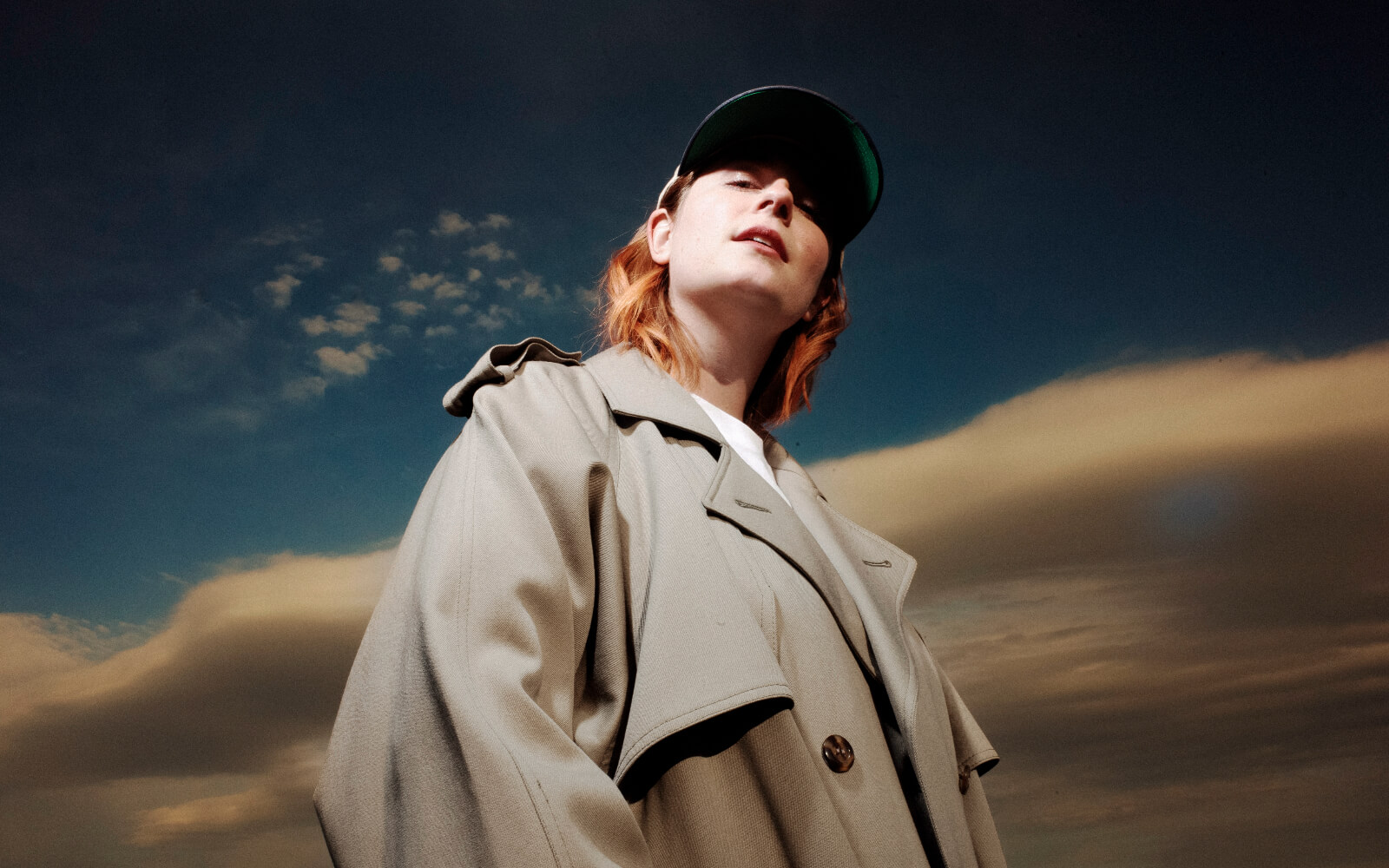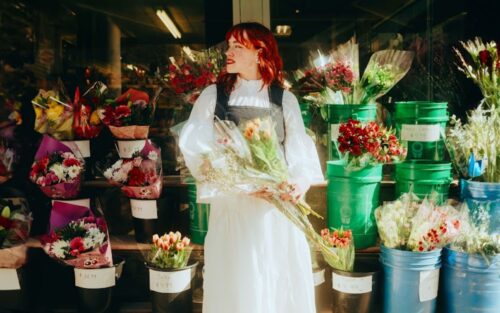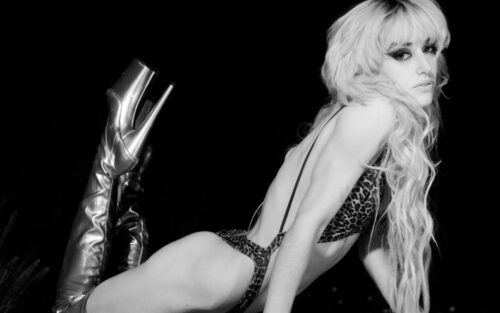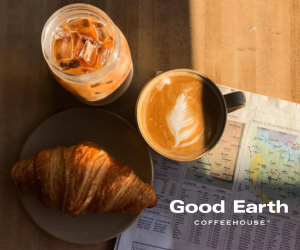Haley Blais: Making Normal Cool Again
The cheeky indie folk songwriter rolls out a reflective sophomore offering with new album, Wisecrack.
By Yasmine Shemesh
Photos by Steph Verschuren
- Published on
She’s in Chicago when RANGE calls, where the group is about to perform. Touring can be intense, and the double-duty outings have offered different mentalities for the Vancouver-based artist. This one has provided a bit of relief. And, she notes, it’s been very fun.
“I’m having such a different experience on this tour than ever before, because there’s not so much pressure and the stakes aren’t as high. And I’m so much more tired, just because I’m allowing myself to be, because I don’t have everything going through my head at once,” she says.
“It’s interesting,” Blais continues. “I’m feeling I’m missing people more than ever—like, when I’m touring for my own project, I don’t miss anyone. I can’t feel that. I can’t have the capacity to care. There’s no more brain room to miss anyone or to be a normal person. And I’m a normal person!”
This kind of emotional liberty is at the heart of Blais’ new album, Wisecrack. She wrote her sophomore effort, out September 15 on Arts & Crafts, with her “brain turned off,” allowing the songs to pour out naturally. “It was all hindsight and realizing I was processing things in the moment, without really realizing it,” Blais says, adding that the writing experience, which began in 2019, feels like a big blur. “I think it was a big release. It was really satisfying.”

The result is a profound work that is existential and confessional—and, though deeply personal to Blais’ own life, also broadly relatable to the human experience. Verses that Blais wrote revealed deeper meaning to her as she recorded, mostly last year, at Maple Ridge’s Protection Island Studio alongside producers David Vertesi and Jonathan Anderson, who helped craft the album’s indie pop sound. When they’d ask what kind of instrumentation Blais wanted to accompany her songs, it prompted her to think about what they actually meant and what she was trying to say.
“I like learning,” Blais says. “When I write a song, I want to start it in a certain way and then learn something by the end of it—whether it’s by the end of writing it, or at the end of my time experiencing it.”
If there is a through-line across all her work, from her 2020 debut Below the Salt to Wisecrack, it’s a reflectiveness. Blais loves being nostalgic. It exudes in poetic lyrics and pop melodies that are warm and familiar. She very much lives in the past, in her head—and always puts herself back into what she calls a very lucky and peaceful childhood.
Blais grew up in Kelowna. Her upbringing was “so normal,” she describes. “Just, like, nothing special. But that’s maybe what was special about it.” While she sang classical opera for many years, most of the music she was exposed to early on was whatever her parents were listening to, or what was playing on the radio. It wasn’t until Blais got to high school that she began figuring out her own taste, discovering artists like Bob Dylan, Daniel Johnston, and the Moldy Peaches. Mostly indie, folkie stuff, and female singer-songwriters like Sheryl Crow.
“I think that maybe I was drawn to people who sang compassionately about things,” Blais considers. “It’s in my blood, for sure. I can’t run away from being empathetic about, like, a sad old man living alone. I’ll just cry. And write a song about it.”


It’s a quality that surfaces on Wisecrack in songs that feel like vignettes of adolescence, accented with cheeky humour and underscored by tenderness. On “Survivor’s Guilt,” for example, Blais processes the painful loss of her family dog. “Matchmaker” is about finding love, but looking for holes in the relationship as a result of her parents’ divorce. And “Body” showcases Blais’ sublime vocal range as she sings: “Don’t ask me any questions about all the things I’ve done / Cuz nothing ever changes.”
Then there’s “The Cabin,” an album standout with lines like: “Never said that it was funny / But I’m laughing anyway / Instead of holding on I dropped the rope into the lake / I’m drowning.” With its dreamy melody edged with noisy shoegaze, the song brings a harsh contrast to a wistful summer memory.
“To me, that was the tidal wave of reality,” Blais explains. “When you hear those distorted guitar slams out of nowhere, that’s, like, when you’re swimming and you feel like you’re going to drown or something because a big wave comes in, and then you get saved and you’re like, ‘Oh, okay, it wasn’t so bad.’ I wanted that song to feel really textured; to feel breezy and beachy and summery and then scary, for a sec.”
Blais didn’t have a specific sonic vision for Wisecrack. She wanted it to be “a bit of everything,” something that channelled the confessional singer-songwriters she loved as a teen—music that brimmed with acoustic riffs and minimal yet rich, lush arrangements. In this way, the musical landscape also has a foundation in nostalgia, drawing on the eclectic soundtrack of youthful musical discovery and the subconscious internalization of what you hear on the radio or from your parents’ record collection. At the same time, Blais’ songwriting savvy brings a cohesiveness to it all.

Photo: Mackenzie Walker
She played many instruments on Wisecrack, more than she ever has on her previous releases, including bass, guitar, Wurlitzer piano, and percussion. Vertesi and Anderson were on hand to fill in any gaps, adding unexpected touches like dulcimer and banjo.
That’s what’s fun about collaboration, Blais adds. “What I’m writing and singing about is so specific to me, but really vague to them because they didn’t live it. So, they can be like, ‘Oh, let’s put a banjo on this song.’ I’m like, ‘But this is a sad song, banjos are happy.’ And they’re like, ‘Well, this song sounds happy to me, let’s contrast it.’ They’re coming in with fresh ears, no context, and I think that’s cool.”
Speaking of collaborators, Blais worked with VFX and animation artist Shea Oracheski on the music video for “Baby Teeth.” In the video, everything around Blais materializes, then dissolves, which aptly represents the song’s lyrical content about the past and things you can’t hold onto anymore.
“I wanted this video to feel like a memory, where it’s these landscapes that you can’t quite remember, but that you know if you saw them or by how they feel or just by their outline,” Blais explains of the concept. “And I’m just kind of floating in there because they’re my memories and they belong to me, but they’re not real anymore, so I can’t quite touch them. But I still live in there.”
It reflects, in a way, how she feels being on the other side of making Wisecrack. She’ll always be connected to her past, but is more present right now. Content.
“I think you’ll hear it, hopefully, but I also feel it: a maturity,” Blais adds. “I just feel a little bit more human, a little more self-actualized. And I’m really, really excited for this album—because I feel like I feel that way because of it.”
By Ben Boddez
The Toronto-based pop artist pens an ode to defeating online jealousy that sounds fresh out of the early 2000s.
By Cam Delisle
Just in time for her L.A. Pride debut, the alt-popstar drops the visual for “Versed”—a sweaty anthem that pulses with desire.















